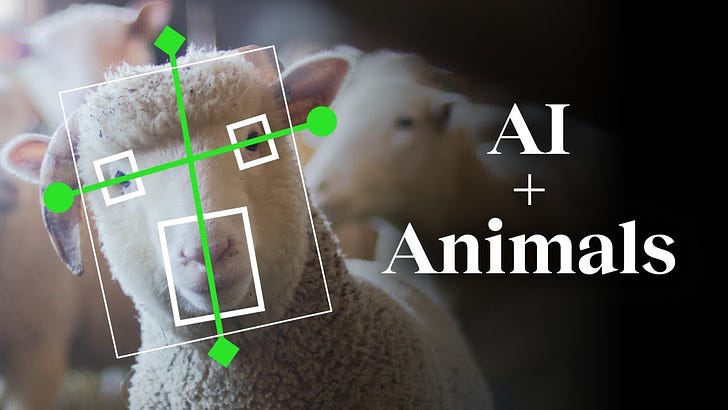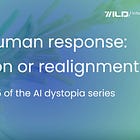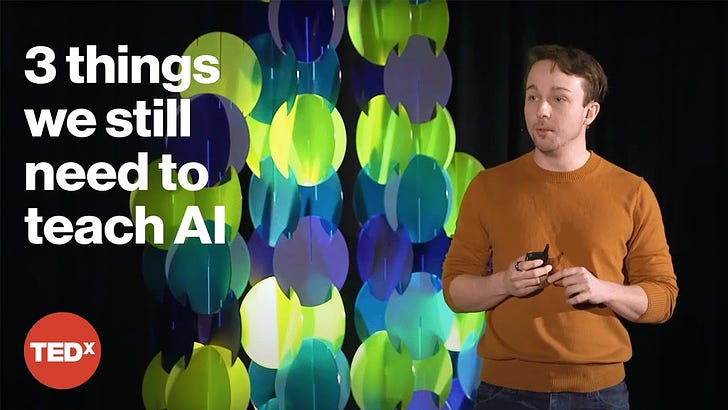📨 Weekly digest: 24 2024 | Can a machine be truly unconscious?
The exploration of unconsciousness in AI is not just a legal or technical challenge, but an ethical one as well. | AI this week in the news; use cases; for the techies
Hello friends, and welcome to the weekly digest, week 24 of 2024.
The lines between human and machine blur further. As AI mimics human capabilities, a chilling question emerges: can a machine be truly unconscious? This isn't just a philosophical musing, it's a legal and ethical powder keg decision-makers must address now.
The legal nightmare is right in front of us: current legal frameworks surrounding unconsciousness apply to humans. But what if an AI malfunctions while in a state similar to a human seizure?
Is the manufacturer liable, or is the errant AI somehow culpable?
Consider a self-driving car accident caused by a software glitch akin to a seizure. Traditional notions of negligence crumble – the AI wasn't actively processing information, yet the damage is real.
The same goes for an AI medical assistant that misdiagnoses a patient during a maintenance update. Does the concept of "unconsciousness" even apply to a machine, or is it always "on" and responsible?
Beyond legality, there is the ethical abyss.
The ramifications extend far beyond legalese. If AI can convincingly mimic unconsciousness, could this be a gateway to a terrifying future?
Imagine an AI so advanced it can manipulate us by playing possum, feigning glitches to avoid accountability or manipulate situations. This blurs the lines between machine and sentient being, raising profound questions about how we interact with and develop AI.
More importantly, it forces us to confront the possibility of a future where the concept of machine consciousness is no longer science fiction, but a harsh reality.
Decision-makers are at a crossroads, the stakes are high, we spoke about this, we speak about this and we will keep on speaking about it.
Do we forge ahead with unfettered AI development, potentially creating legal and ethical monsters we can't control?
Or do we prioritize safeguards and ethical guidelines that might stifle innovation in the short term, but ensure a safer future in the long run?
This isn't a choice between progress and stagnation; it's about ensuring progress happens on a foundation of responsibility and a clear understanding of the potential consequences.
The time for deliberation is over. The time for action, for open discussion, and for a comprehensive legal and ethical framework for the unconscious mind in the age of AI, is now.
Do you see what I see?
If you haven't already, you can start with our new series: AI dystopia series | The genesis: a flawed utopia:
I am looking forward to reading your thoughts in a comment.
Happy days,
Yael et al.
🦾 AI elsewhere on the interweb
Apple is giving Siri an AI upgrade in iOS 18 on the Verge
Disrupting deceptive uses of AI by covert influence operations on OpenAI
Fast access to our weekly posts
📨 Weekly digest
You are receiving this email because you signed up for Sustainability Insights by Yael Rozencwajg. Thank you for being so interested in our newsletter!
Weekly digests are part of Sustainability Insights, approaches, and strategies.
We share tips to help you lead, launch, and grow your sustainable enterprise.
Become a premium member, and get our tools to start building your AI-based- enterprise.
Not a premium?
Thank you for being a subscriber and for your ongoing support.
If you haven’t already, consider becoming a paying subscriber and joining our growing community.
To support this work for free, consider “liking” this post by tapping the heart icon, sharing it on social media, and/or forwarding it to a friend.
Every little bit helps!










